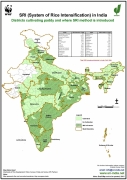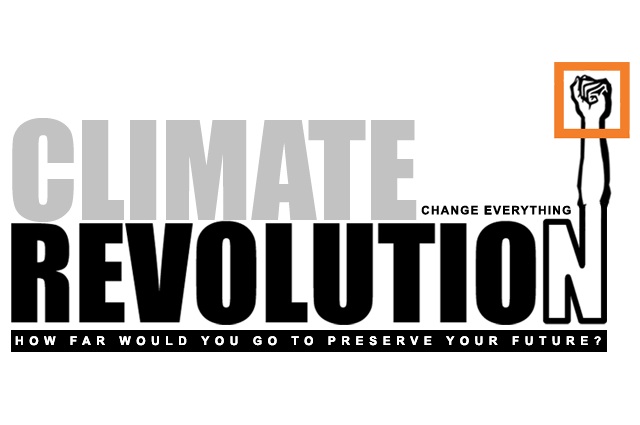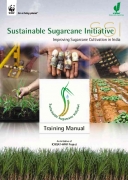India
System of Rice Intensification and Paddy Cultivation - Maps developed by the WWF-ICRISAT Project
Posted on 14 Jun, 2010 06:23 PM Paddy, one the country's staple crops is cultivated all over the country, barring parts of Jammu and Kashmir, Gujarat and Rajasthan. This set of interesting maps about Paddy and System of Rice Intensification (SRI) from the SRI India website, maintained by the WWF-ICRISAT Project (a joint initiative of WWF and ICRISAT), give a bird's eye view of the districts under Paddy and SRI Paddy cultivation, and the Paddy productivity in various districts of the country.
Paddy, one the country's staple crops is cultivated all over the country, barring parts of Jammu and Kashmir, Gujarat and Rajasthan. This set of interesting maps about Paddy and System of Rice Intensification (SRI) from the SRI India website, maintained by the WWF-ICRISAT Project (a joint initiative of WWF and ICRISAT), give a bird's eye view of the districts under Paddy and SRI Paddy cultivation, and the Paddy productivity in various districts of the country.
Districts with Paddy cultivation and where SRI approach has been introduced: Of the total 604 districts in India, paddy is cultivated in 564 districts. Of these, in 246 districts, SRI paddy cultivation approach has been introduced (data as of 2010). The spread of SRI has been most widespread in Uttarakhand, Eastern Madhya Pradesh, Orissa, Jharkhand, West Bengal, Andhra Pradesh, Tamil Nadu and Karnataka, as 50-95% of the districts in these regions/states have presence of SRI.
Rain water harvesting or drain water harvesting - A serious approach to water conservation needed
Posted on 12 Jun, 2010 08:41 PMIF CONSERVATION OF WATER SOURCES, RECYCLE, REUSE IS SERIOUSLY NOT ADOPTED NOW THE TIME IS NOT FAR WHEN WE MAY NEED TO "DRAIN HARVEST" WASTEWATER FOR ALL KINDS OF CONSUMPTIONS.
Millions of people worldwide are opposed to plastic bottled water - An alternative solution is here
Posted on 11 Jun, 2010 07:51 PMThe momentum for a better Global drinking Water Environment is increasing.
One way to achieve this Mission is to reduce the global High energy wasteful costs in producing Plastic Bottles, then transporting these products (so-called mineral,spring, volcanic Water) daily to Supermarkets, Newsagents & Corner stores.
Chasing a mirage: Water harvesting and artificial recharge in naturally water-scarce regions - An EPW paper
Posted on 11 Jun, 2010 12:39 PMThis paper refers to the recent plans by the Government of India to undertake artificial recharge of groundwater in over-exploited areas of the country to meet the demands for water and raises certain fundamental questions about the methods used for analysing the hydrological and economic impacts of the interventions.
Irrigation management transfer in India: The processes and constraints - Paper by IRAP
Posted on 10 Jun, 2010 07:12 PMThe paper discusses the evolution of Participatory Irrigation Management (PIM) in India, following the felt need for better irrigation management to prevent water scarcity in many regions in the country.
The irrigation sector was identified as a priority area in the various policy reforms that took place in the water sector in the country.These reforms emphasised the importance of involving end users/farmers in the operation and management of irrigation conveyance systems.
This led to the establishment of the Farmers Managed Irrigation Systems (FAMIS), which aimed at improving the overall efficiency of the irrigation system, generate a sense of ownership among farmers and to improve the irrigation revenue recovery rate. This laid the seeds for Participatory Irrigation Management (PIM) in India.
A complete analysis of water should be done before finalising the water filter
Posted on 10 Jun, 2010 10:23 AMDear Users of IWP,
Activists from the Climate Revolution dig out climate policy gaps through the Right to Information Act
Posted on 10 Jun, 2010 07:27 AM Content Courtesy: AlertNet
Content Courtesy: AlertNet
Activists from the Climate Revolution initiative in India have discovered a crucial tool in their battle to hold the government accountable on its climate policies: the country's landmark Right to Information (RTI) Act.
Read more about Climate Revolution's work on RTI on their website here.
Irrigation water management for food security in India: The forgotten realities - Paper by IRAP
Posted on 09 Jun, 2010 06:14 PMIn this paper, the authors examine the current debates around India's water crisis and its implications for food security in the country. The paper takes a critical look at the recent official assessments of groundwater exploitation in India in the context of these debates.
The paper proposes that there is a need to make a qualitative assessment of the magnitude of food security and water management challenges facing the country. It argues that two important factors drive the agricultural growth and food production in India. These include access and availability of arable land and water resources, which need to be examined and analysed with particular reference to their regional variations, to get a true understanding of the situation.
Sustainable Sugarcane Initiative - Improving Sugarcane Cultivation in India - Training Manual developed by WWF India and ICRISAT
Posted on 09 Jun, 2010 01:25 AM Sustainable Sugarcane Initiative (SSI) is an approach to the cultivation of sugarcane, that can reduce inputs - water, chemical fertilizers, seed material and farm space - while improving sugarcane production significantly. It also reduces crop duration and provides a longer period of the cane crushing season to the sugar industry.
Sustainable Sugarcane Initiative (SSI) is an approach to the cultivation of sugarcane, that can reduce inputs - water, chemical fertilizers, seed material and farm space - while improving sugarcane production significantly. It also reduces crop duration and provides a longer period of the cane crushing season to the sugar industry.
This farm-based approach (as opposed to crop-based) also gives farmers options to grow intercrops, such as pulses to improve their income. Most importantly, SSI reduces the overall pressure on water resources and contributes to recovery of ecosystems. It conserves soil moisture, thereby allowing for growing of dryland crops in the same region.
SSI is inspired from the successful approach of System of Rice Intensification (SRI) paddy cultivation, which like SSI, originated from farmers and civil society to improve agricultural productivity while reducing pressure on natural resources.
Women empowerment - Jalswarajya project launches 'Jalmitra' initiative in Maharashtra
Posted on 08 Jun, 2010 08:54 PMWomen ‘JALMITRA’ spanning awareness on O&M
Article by - Prabhakar Mishra, IEC Specialist, Jalswarajya Nagpur.
Inroduction